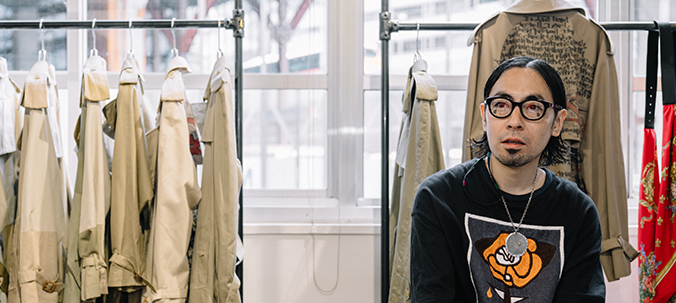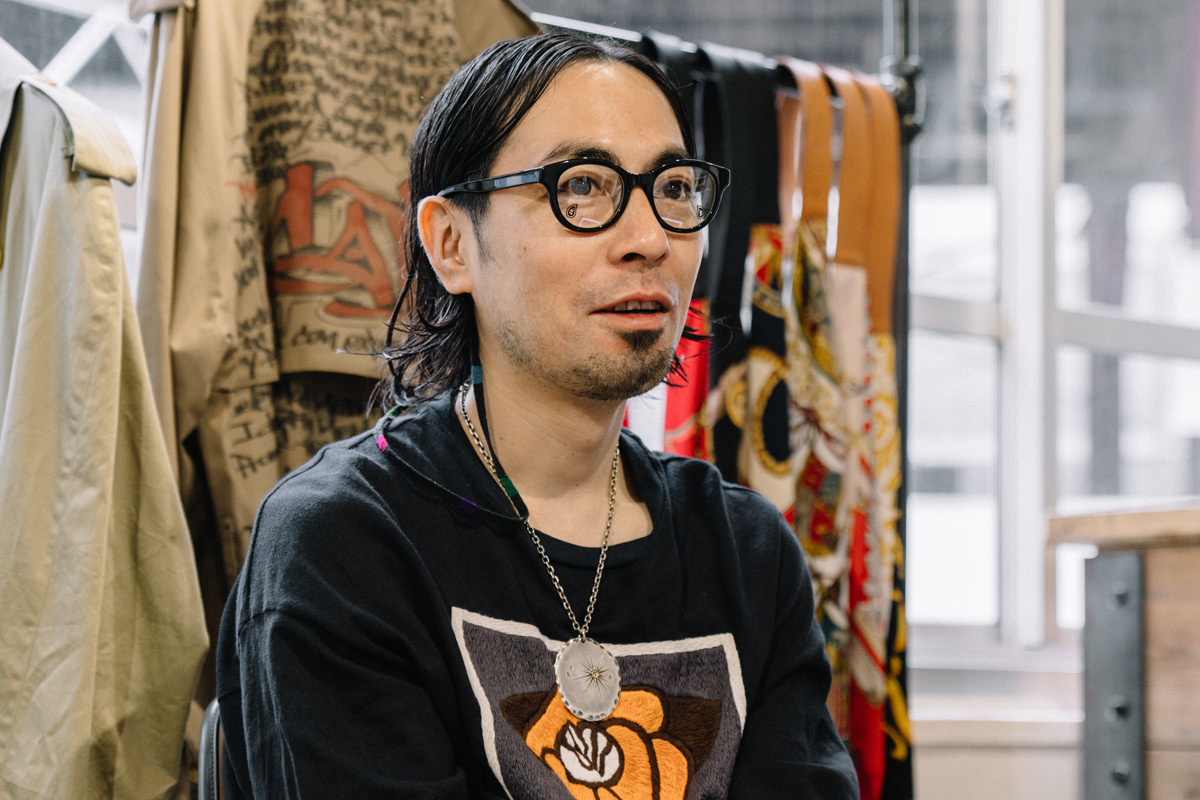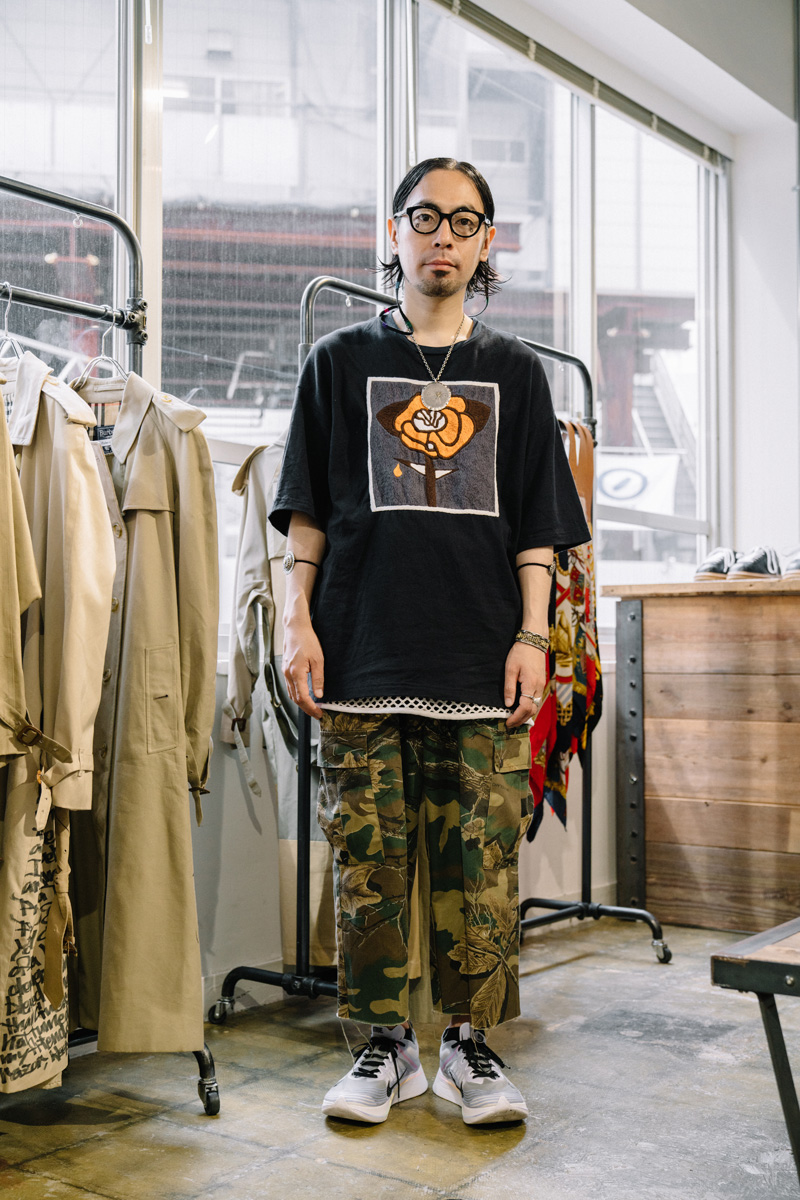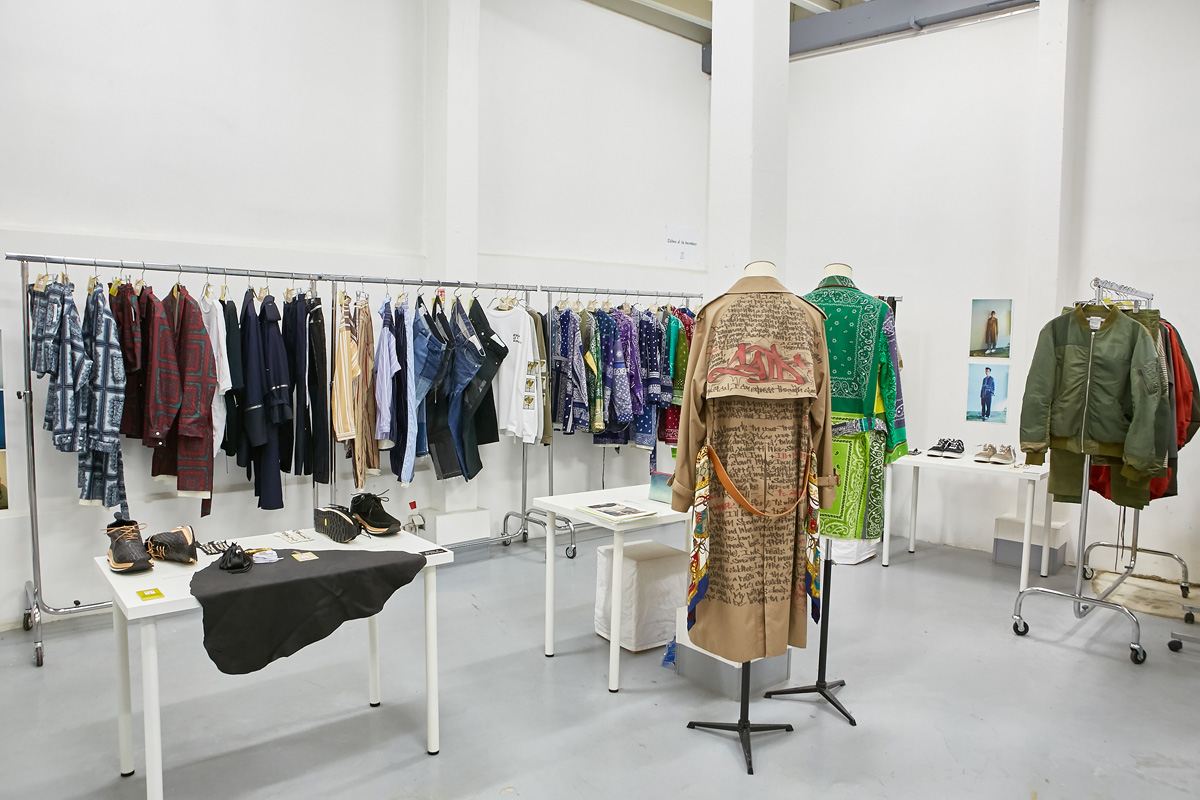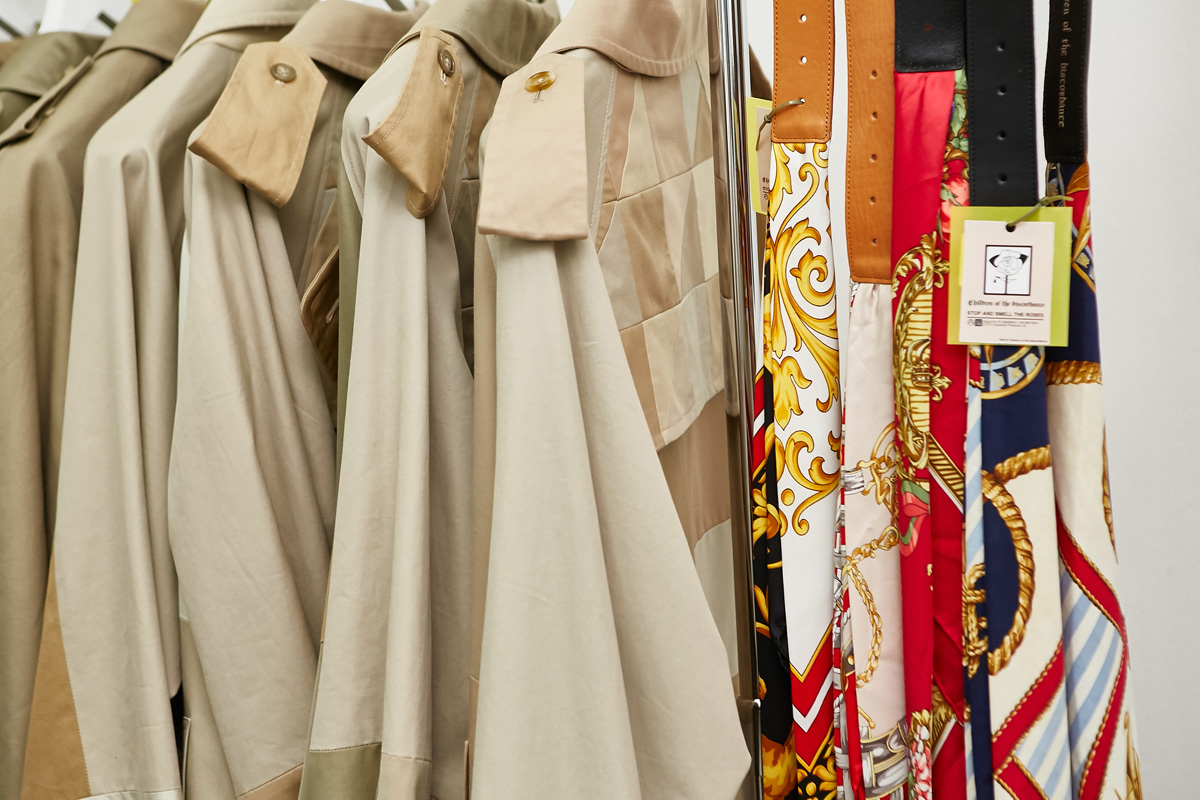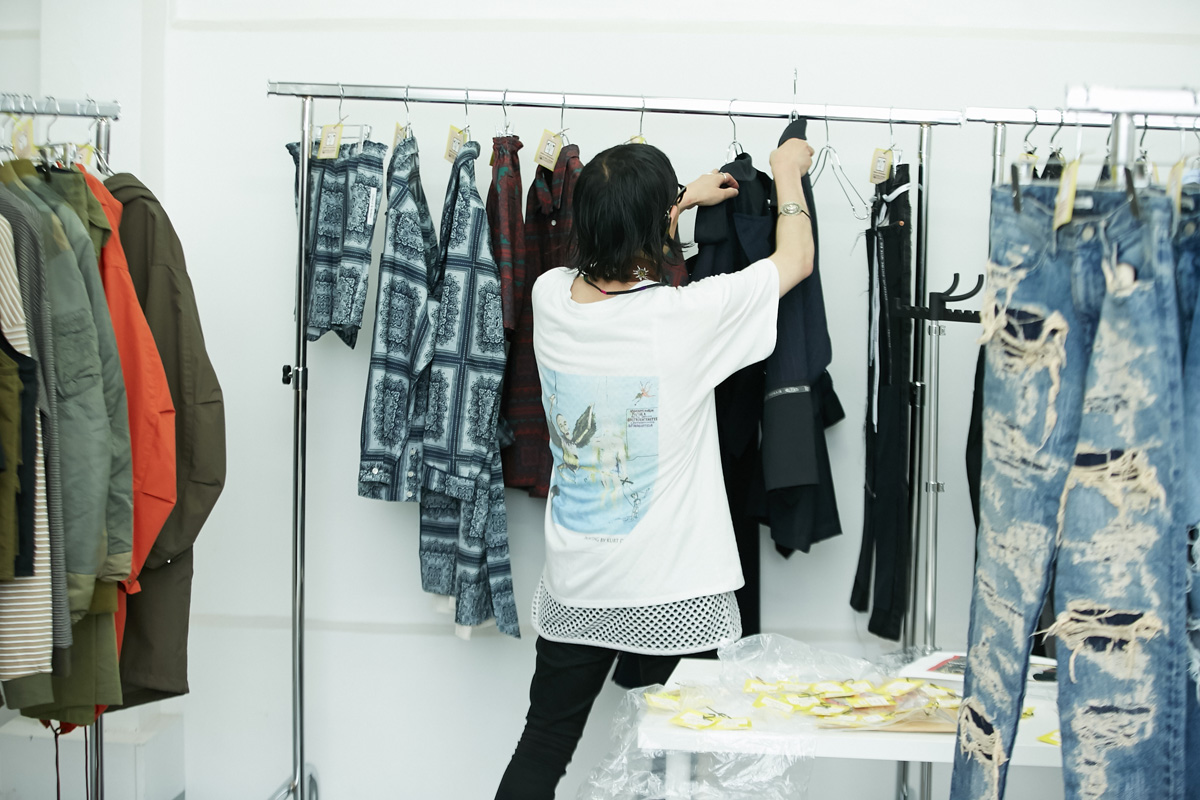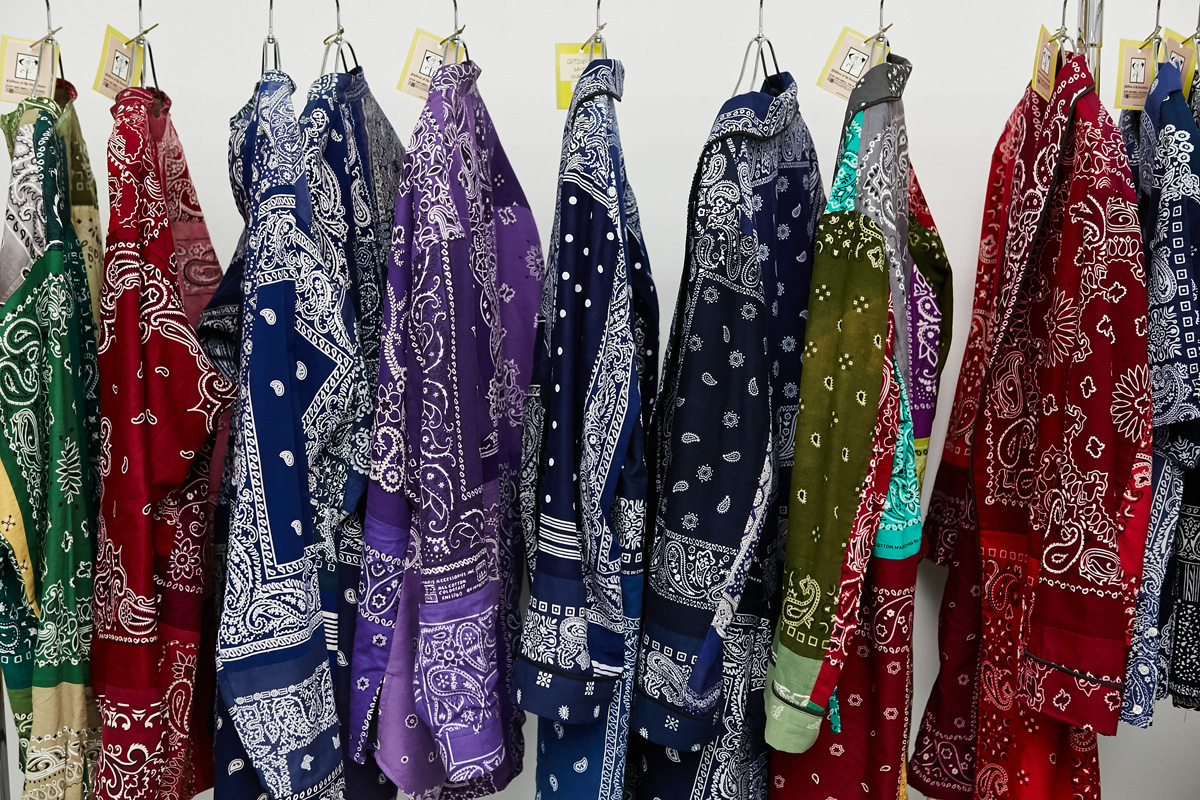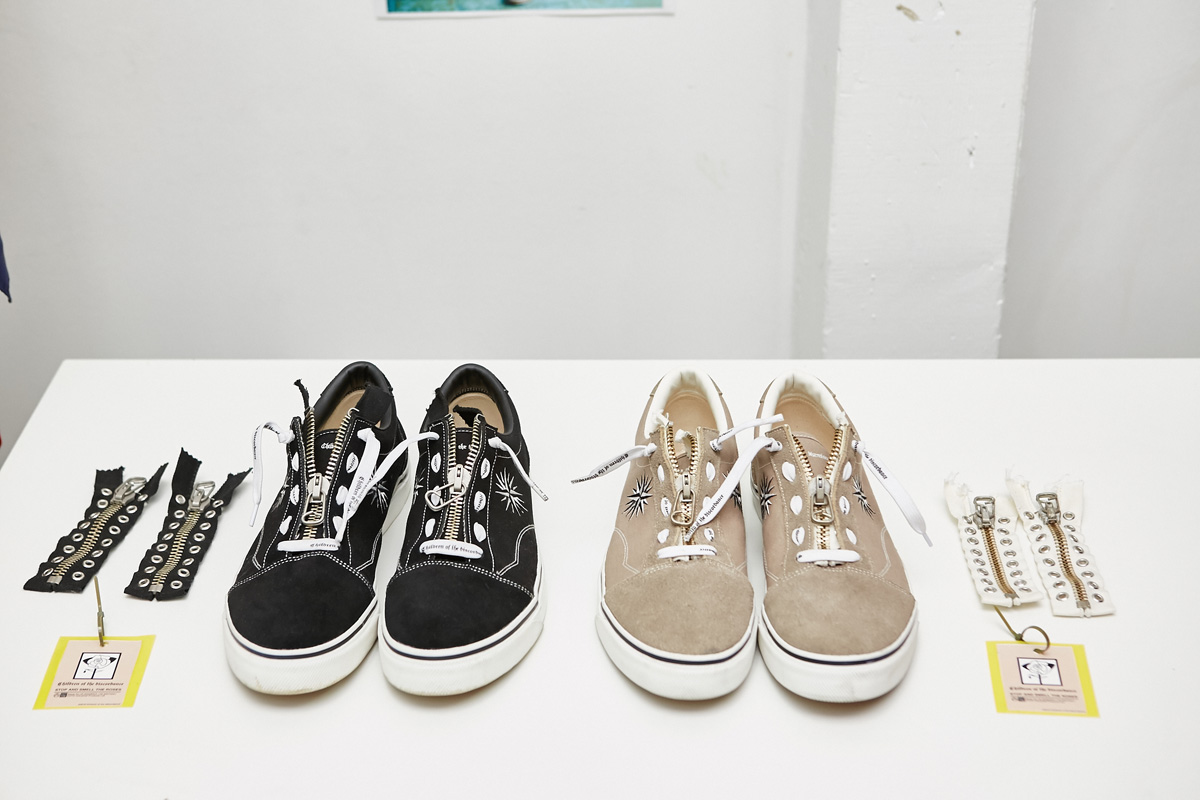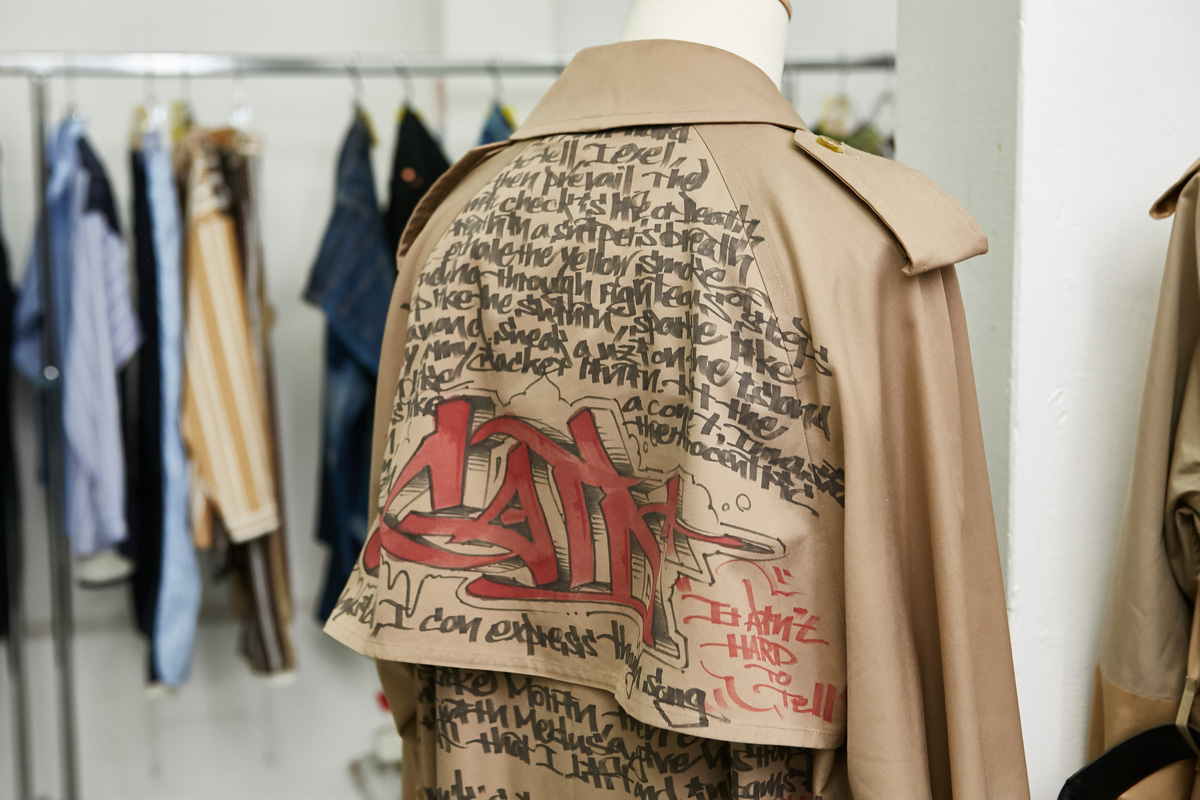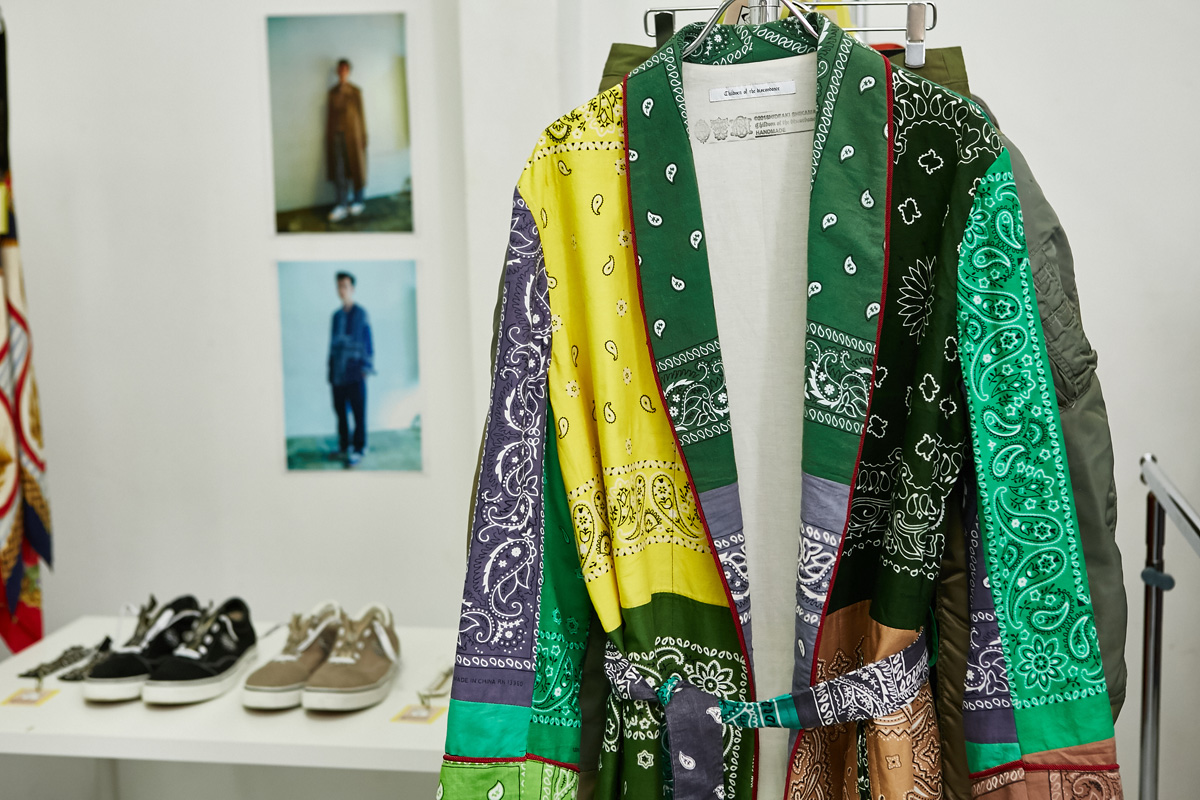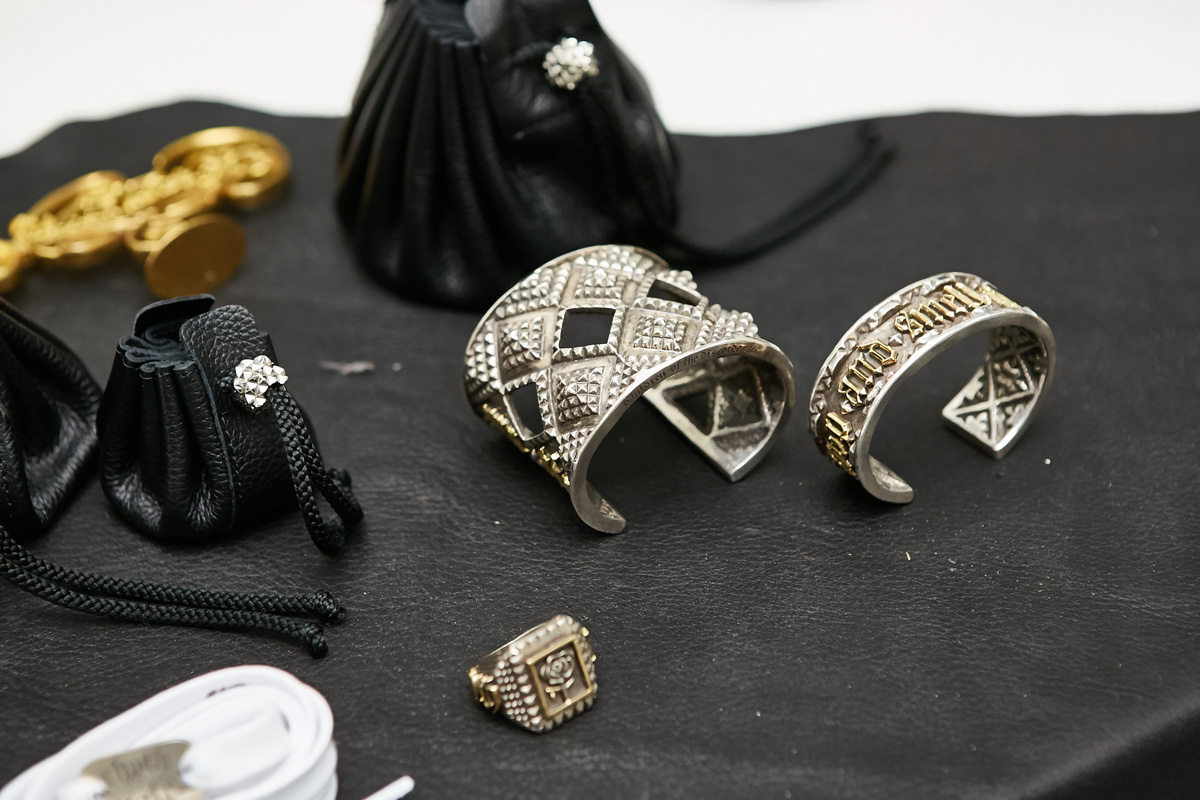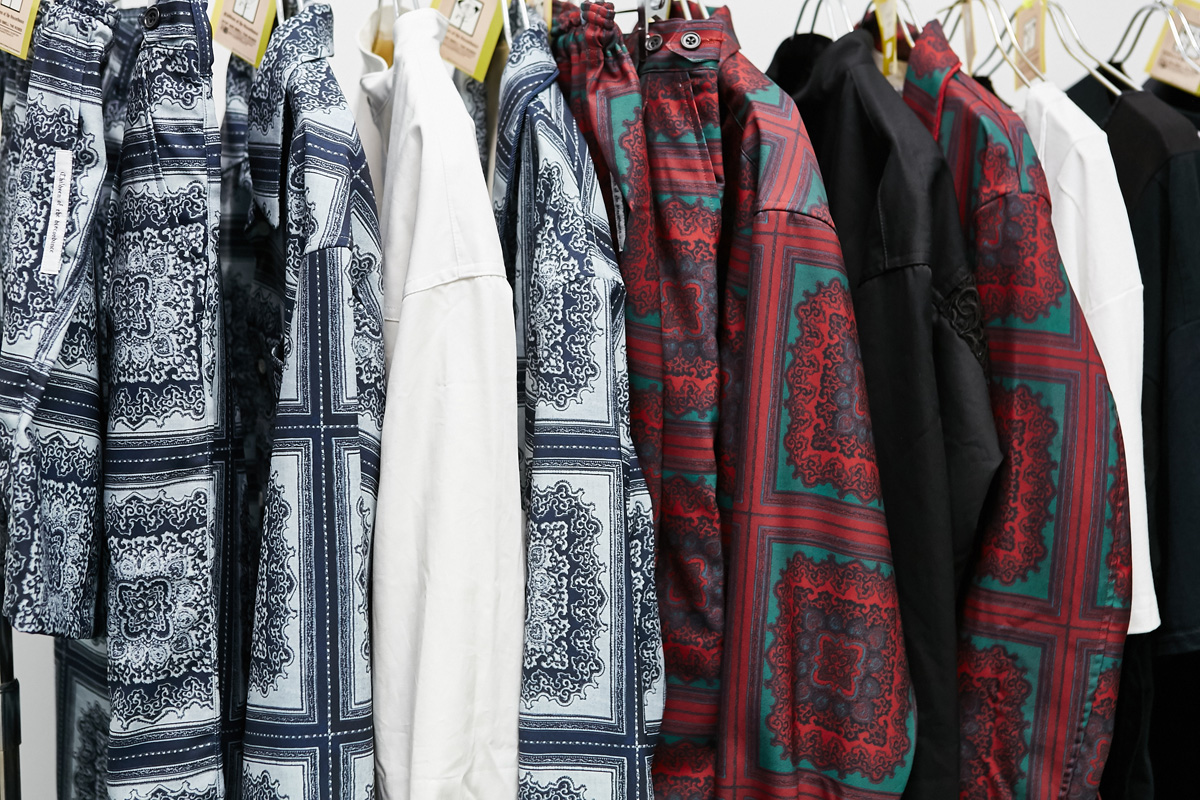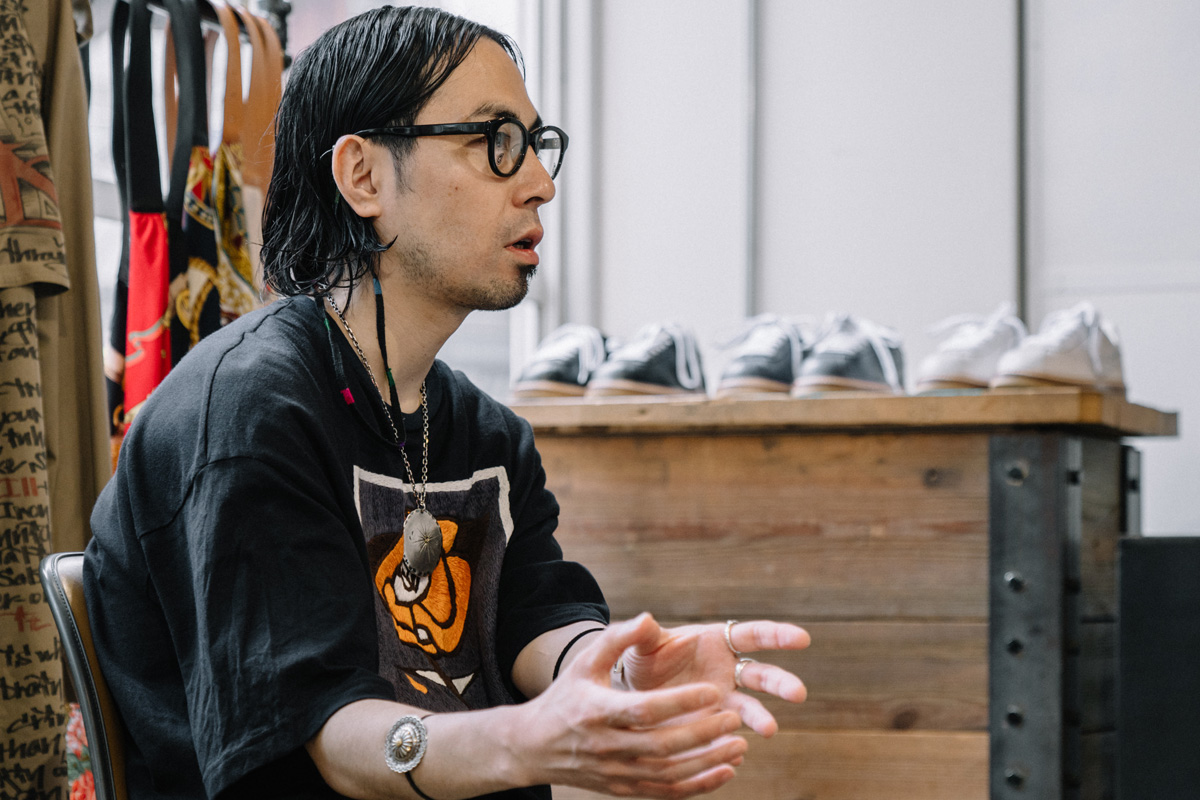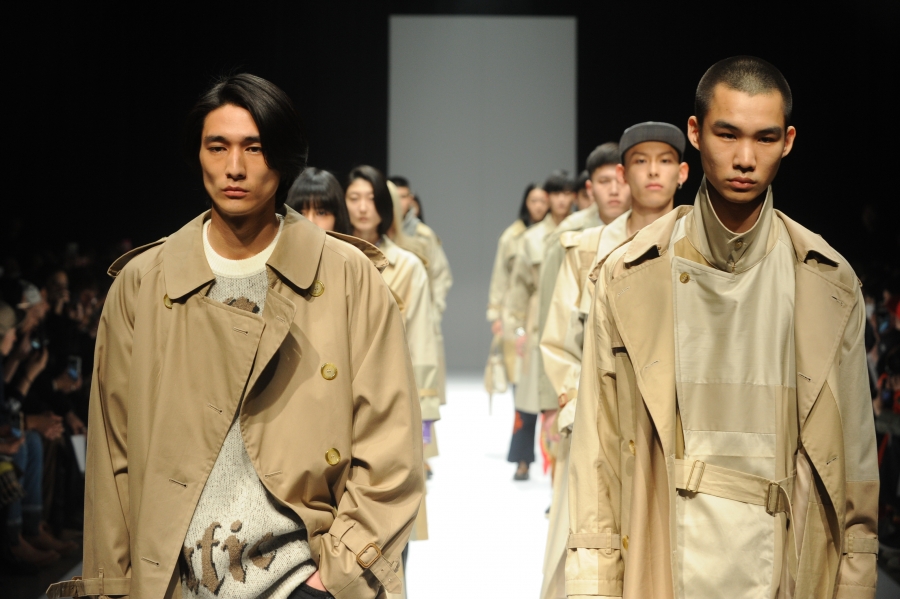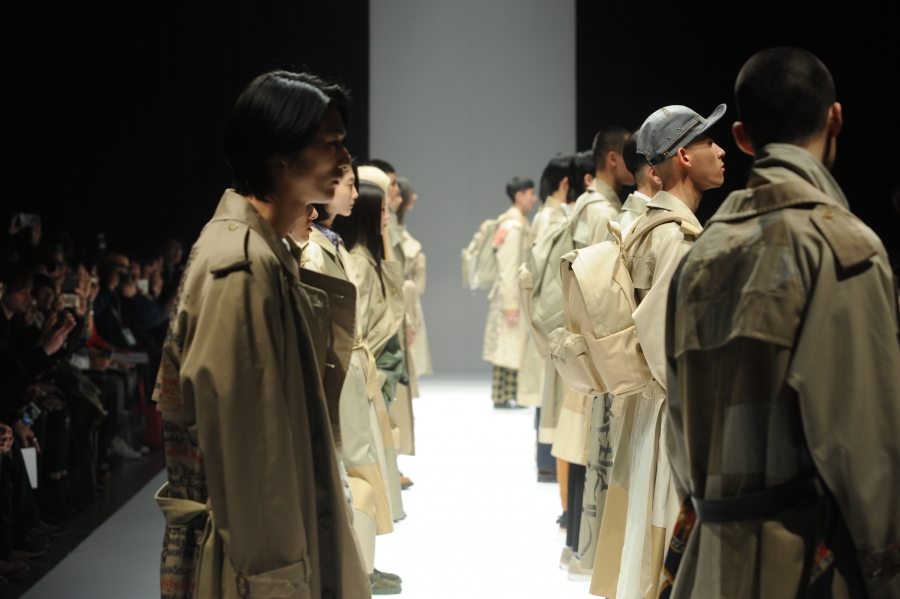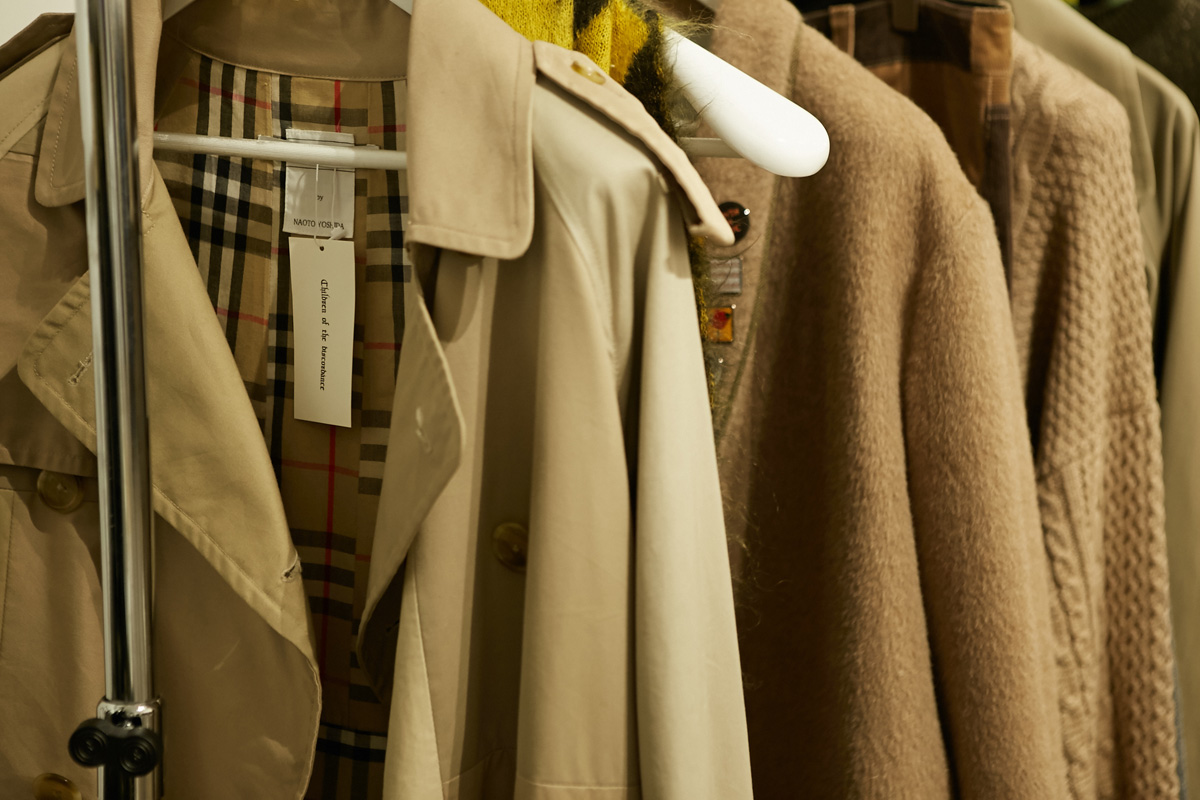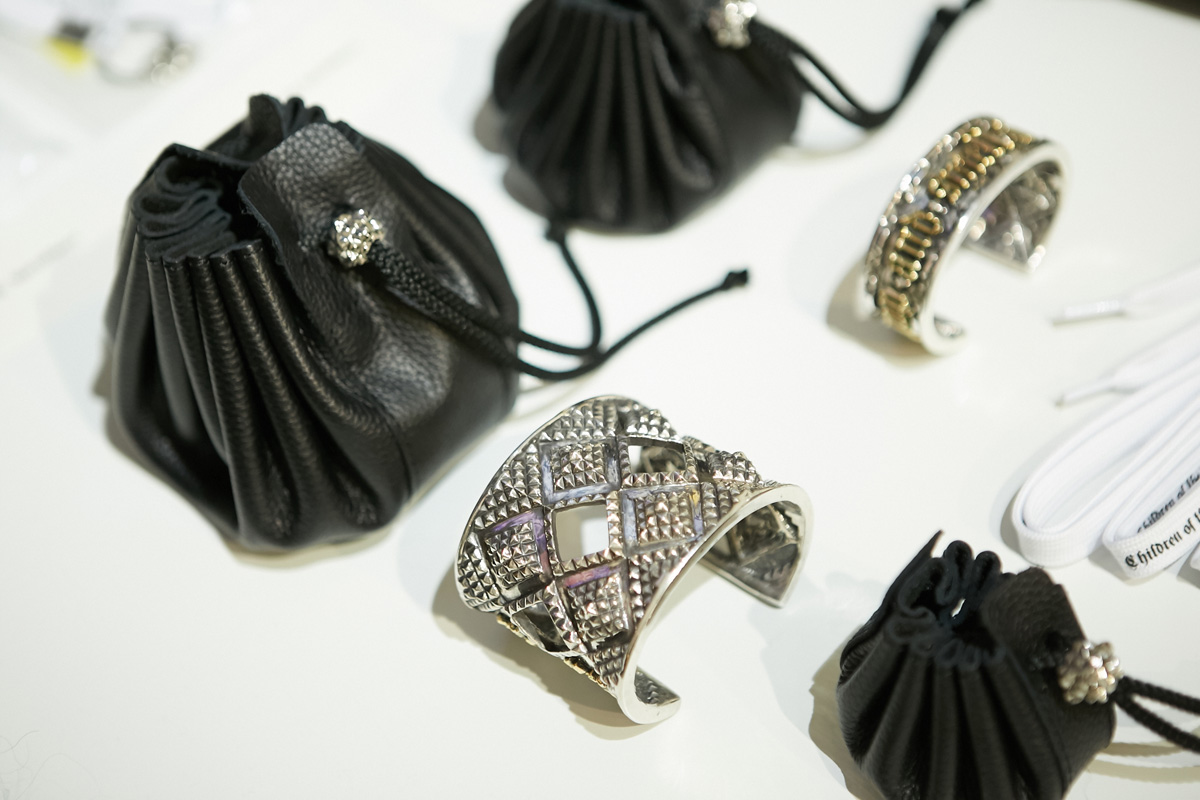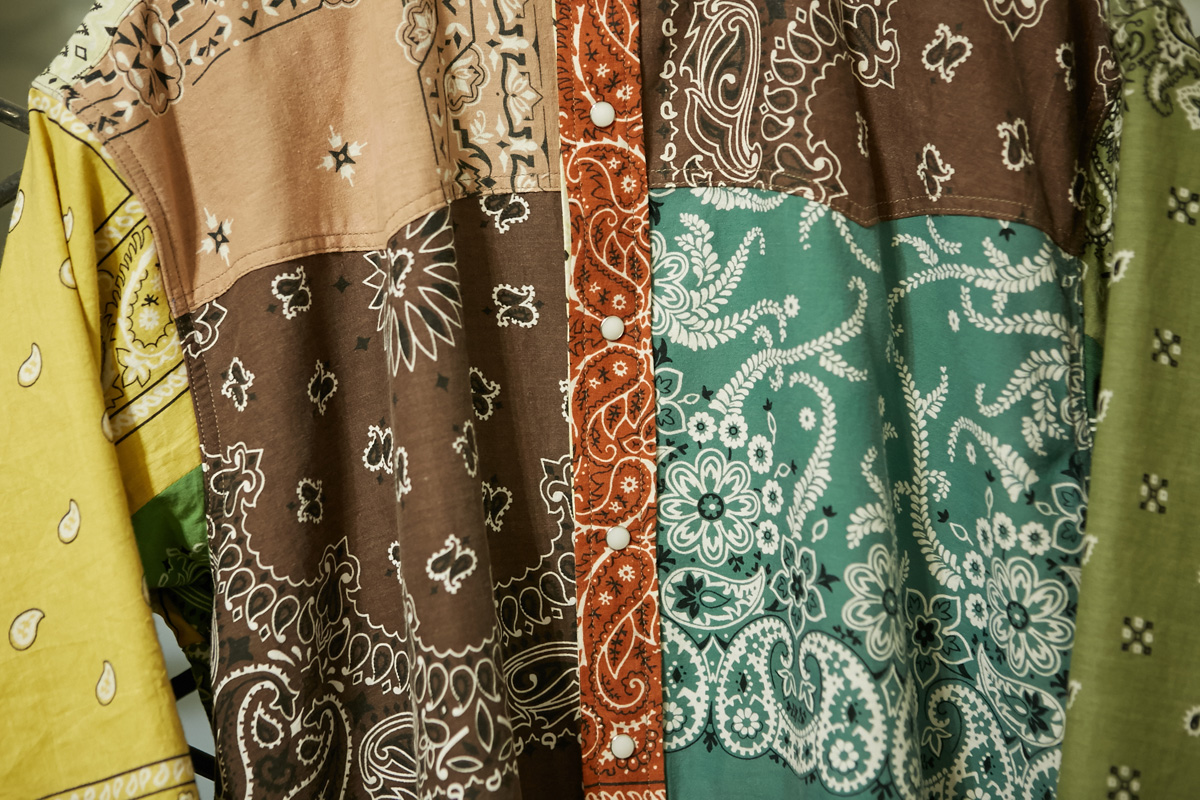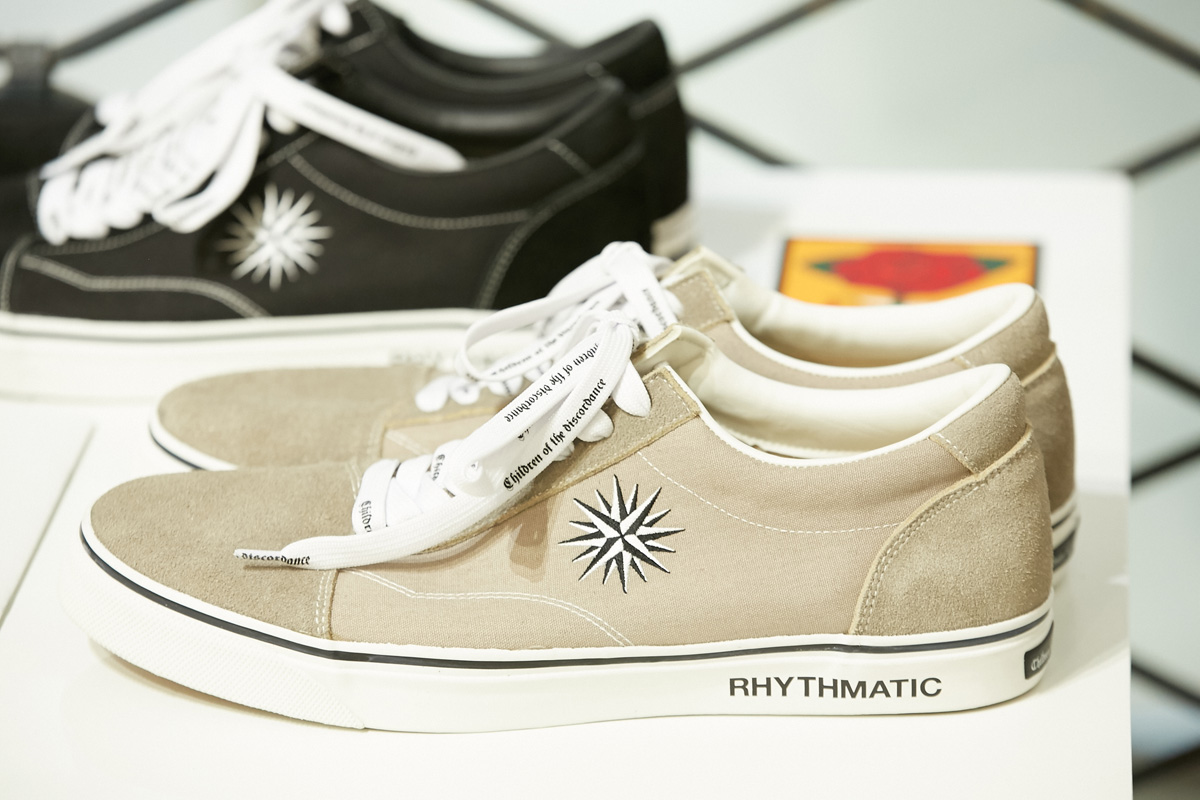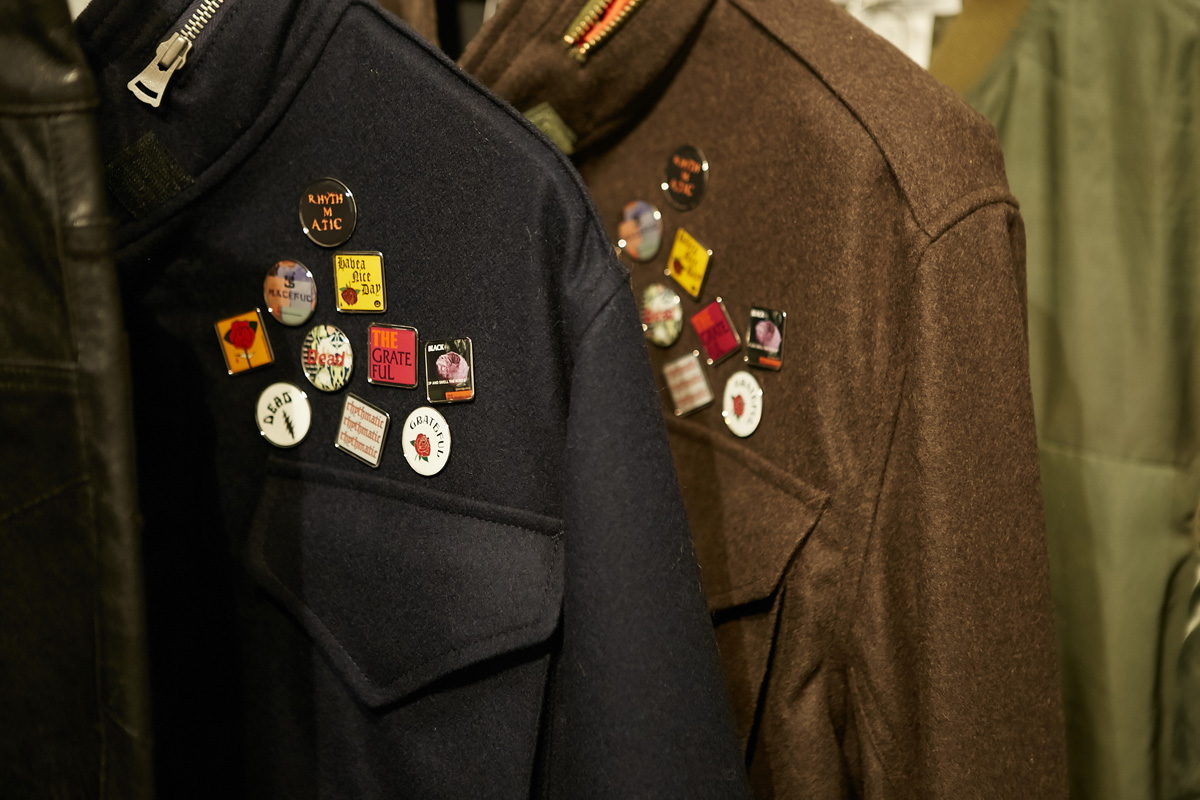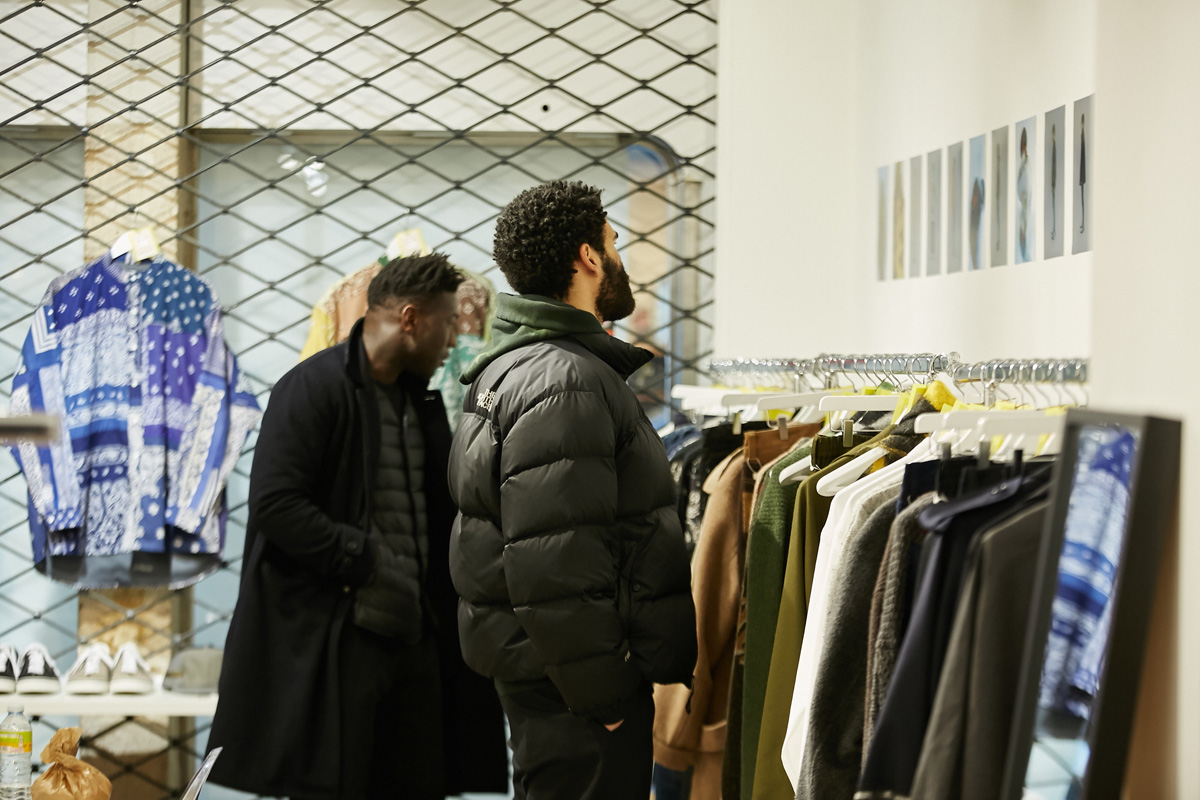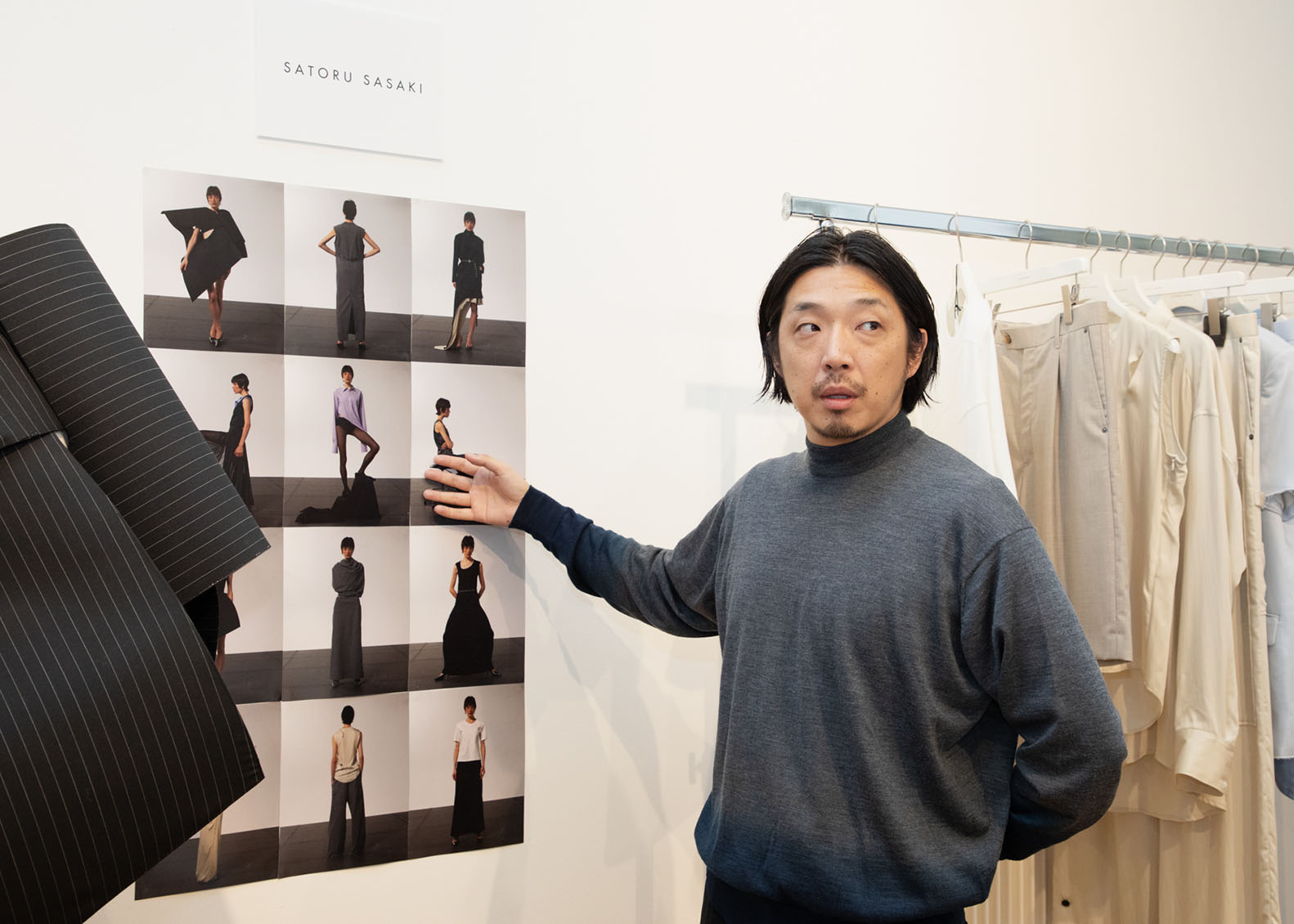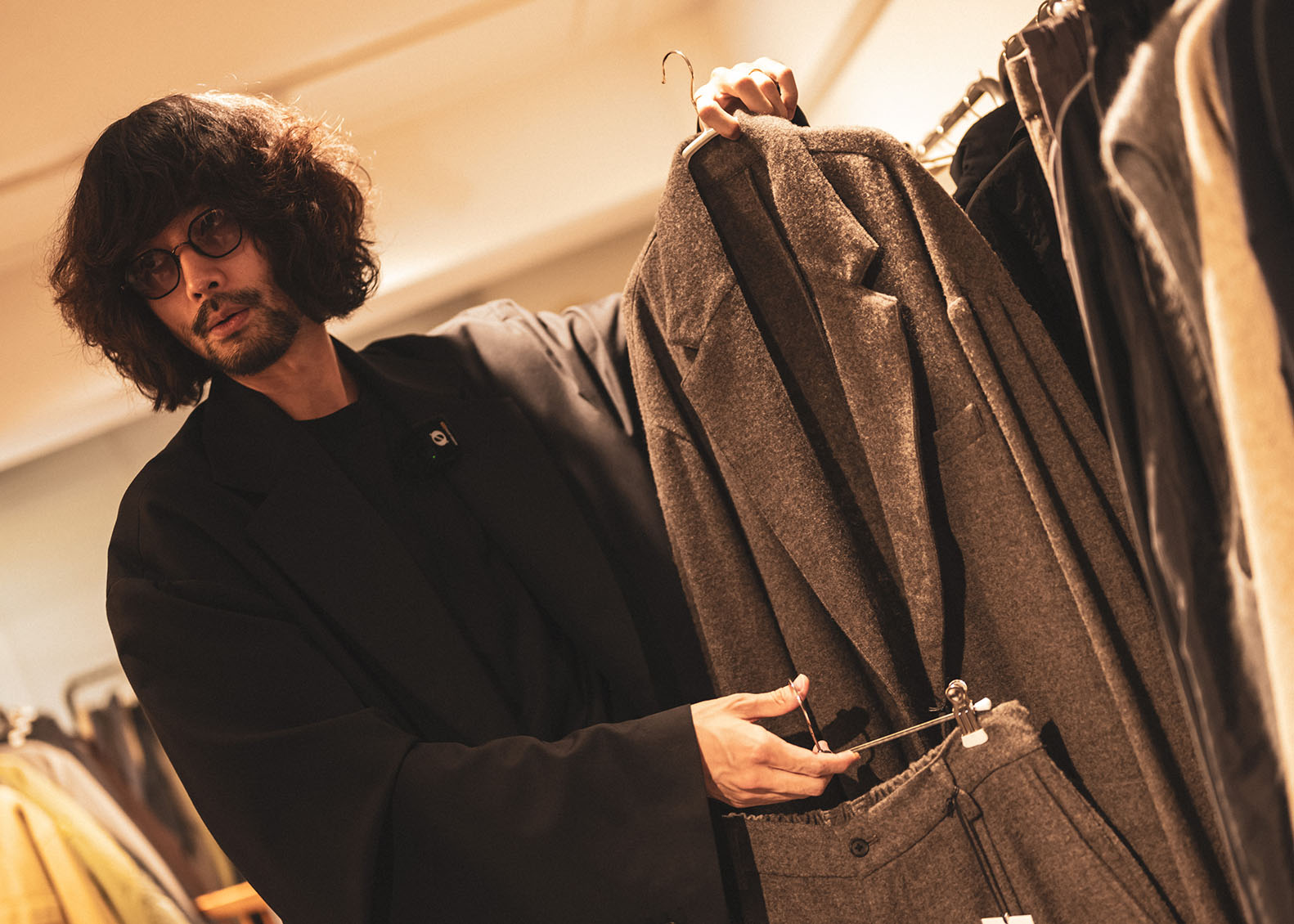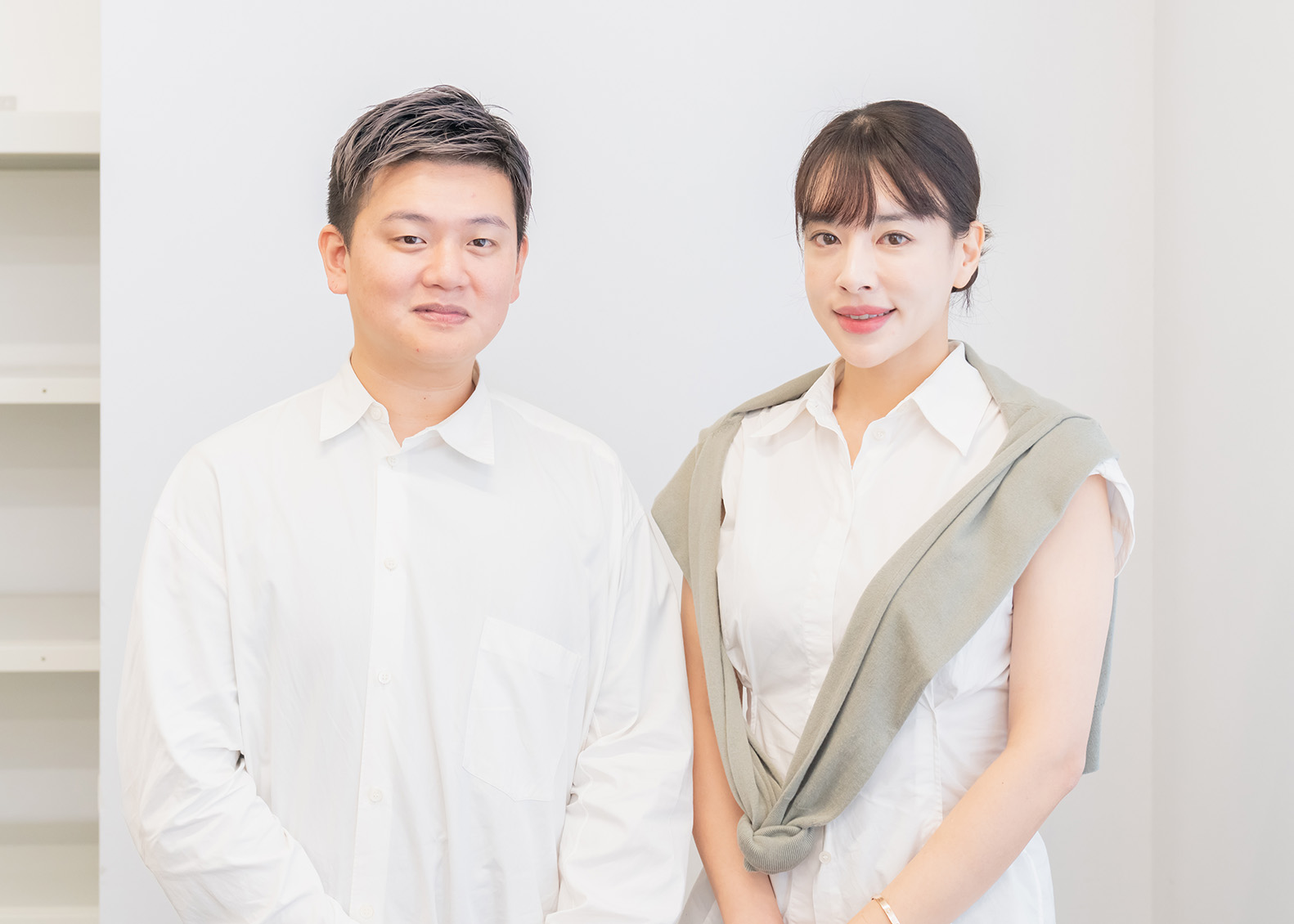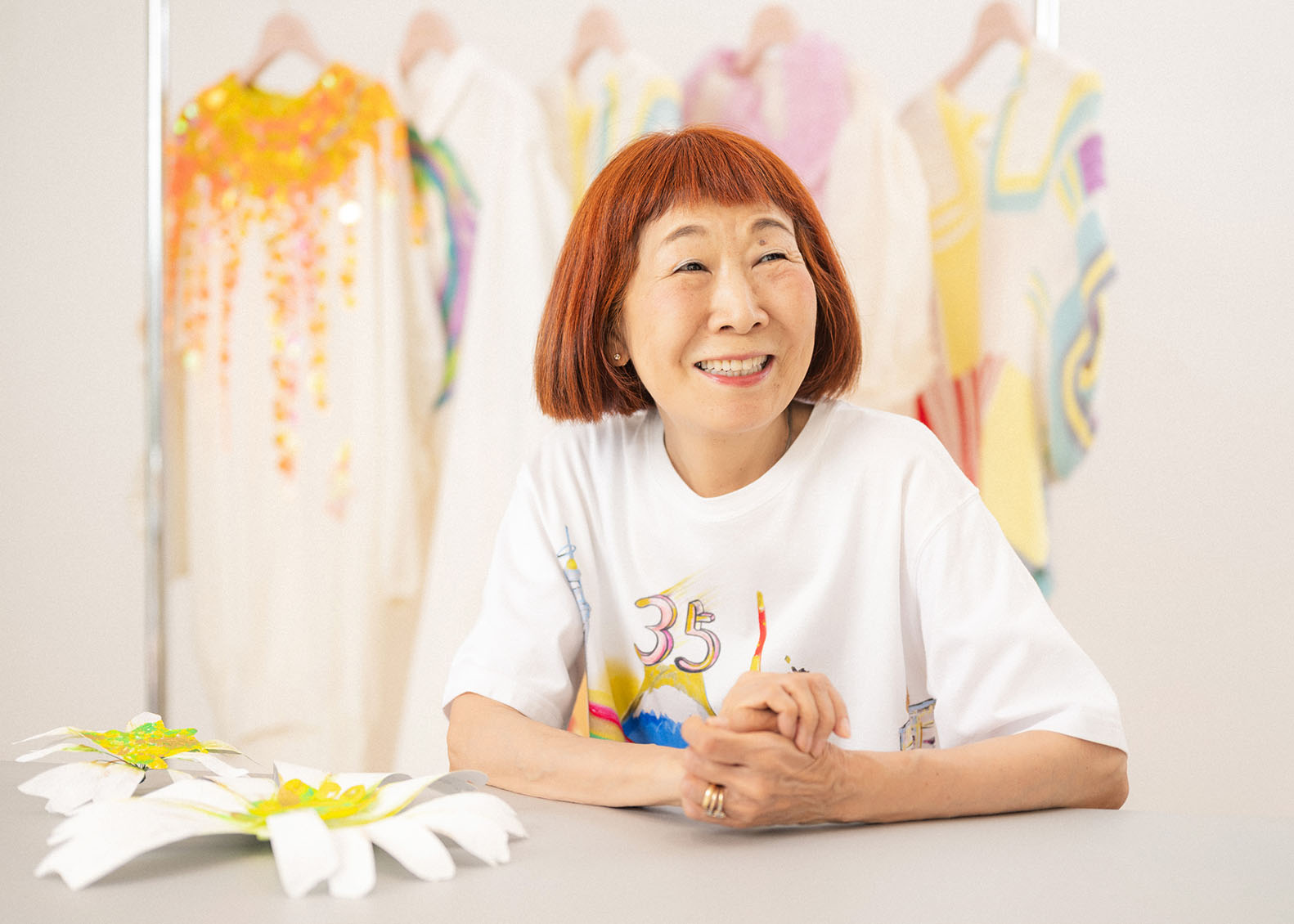Hideaki Shikama (Children of the discordance)
Mr. Hideaki Shikama, whom was involved in the starting up of Acycle, a Harajuku select shop opened in 2005, also acting as its Director and store-brand designer, was the center force in starting up the brand, Children of the discordance in 2011. Nurtured by influences from street culture in which he grew up in, and having experienced all sorts of genres since childhood, his creations backed up by his overwhelming knowledge and experience in fashion, is being highly praised both nationally and internationally. We spoke to Mr. Shikama, whom, as an award-winner of the TOKYO FASHION AWARD, gained a huge opportunity to appeal to his target of overseas markets, on future directionalities the brand is aiming towards.
Please tell us how you came to start your own band.
I’ve been interested in fashion since I was in elementary school and have familiarized myself to a wide genre of clothing, from street to mode. I had always wanted to be involved in a fashion related job, so I started working at the select shop SHIPS, but one day, I was fully entrusted with creating a shop in Harajuku with a totally new form of business, from planning the business itself, and ended up being involved in a shop called Acycle for 6 and a half years. There we carried original brand items too, so I was able to experience in totality, from buying to creating, and for this, I am still thankful to SHIPS. But because it is a large company, I was making clothes in an atmosphere of always being demanded high sales, and I feel I was flooded with work I needed to prioritize over thinking about whether I want or do not want to wear it. So, with some friends, I began to make clothes I could wear to work or in private, and this became the beginning of Children of the discordance.
In making a collection every season, do you fix a clear theme?
I design the graphics and textiles myself, so I collect all sorts of materials every season, but I don’t really fix a seasonal theme. Rather, recently I’m thinking we should not become a brand which creates their clothing based on a seasonal theme. Of course, fashion is a consumption item, but at the same time, because it’s not cheap, it is my wish to make clothes which people will want to wear all their lives.
Does the culture you’ve grown up with, such as skateboarding and hip-hop, have an influence on your clothes making also?
Especially up to now, there was a need for me to push forward such personal aspects, in order to convey the brand’s identity. But recently, I’m beginning to think, if I continue to make only those things I like, people will get bored, and the brand can’t grow. Now, we are trying to go to battle in overseas luxury markets, and we are consciously creating so buyers of select shops would want to pick up our items as something worthy of being displayed next to famous top brands. All the more reason why, although I will continue putting into shape those things I’ve been influenced by or those things I truly love, by polishing the designs and silhouettes with a broader perspective, I intend to raise the quality of the clothes we make.
You’ve just done exhibits in Europe for 2 seasons as an award-wining brand of TOKYO FASHION AWARD, but what are your thoughts on overseas transmission?
For a brand which is hardly known at all overseas, I think what we need to do are things other designers can’t, through-and-through. Overseas buyers have strong tendencies to place value on originality, and even if the price is high, if the item is truly special, they will buy. In truth, there is a certain famous select shop which we’ve been doing business with for the past 3 seasons, but the only things they buy are remake lines of disassembled and restructured vintage clothing. I feel the need to build up a ‘for this, go to this brand’ reputation among buyers.
Please tell us what you are particular about in making the vintage remake like you’ve just mentioned, or special memories if any.
I love clothing so much, I think there isn’t anybody in the whole industry whom has bought as much clothing as I have. But because I feel I’ve been given a life thanks to clothing, all the more reason why I have ten times more respect for clothing than anybody else. That’s why, in this remake line, I try not to put scissors to the vintage clothing as much as possible and disassemble by undoing the stiches. It’s easy to simply say remake of vintage clothing, but I spend almost a whole day making one piece, so it’s closer to making an order-made. I intend to stick to and continue this way of making.
As a part of the TOKYO FASHION AWARD program, you’ve also done a runway show during Amazon Fashion Week TOKYO this March. How was that?
Many students interested in fashion came to the venue, too. I feel the acknowledgement level in Japan has risen, and the number of SNS followers have increased dramatically, especially in Asia. This has refreshed my thoughts on shows being a means of transmission which many people look and pay attention to, so I’m thinking of doing it again, soon.
Please tell us of your future aspiration.
Through the 2 seasons we were involved in the TOKYO FASHION AWARD, I gained a sense that the road I laid down towards the goal I wish for is not off-track and felt a sure response. I intend to keep probing into how far the brand can grow in severe overseas atmospheres, and also, how much potential I myself have. Furthermore, local sales teams have told me, in order to secure overseas business, I need to secure a steady place of presentation in Paris, so I am thinking of making such an opportunity befitting our ability, without straining ourselves.
Interview by Yuki Harada / Translation by Aiko Osaki
Photography by Yohey Goto (interview)
[ Website ] http://www.childrenofthediscordance.com/
[ Instagram ] https://www.instagram.com/children_of_the_discordance/
[ Twitter ] https://twitter.com/hideakishikama
[ Facebook ] https://www.facebook.com/ChildrenOfTheDiscordance

